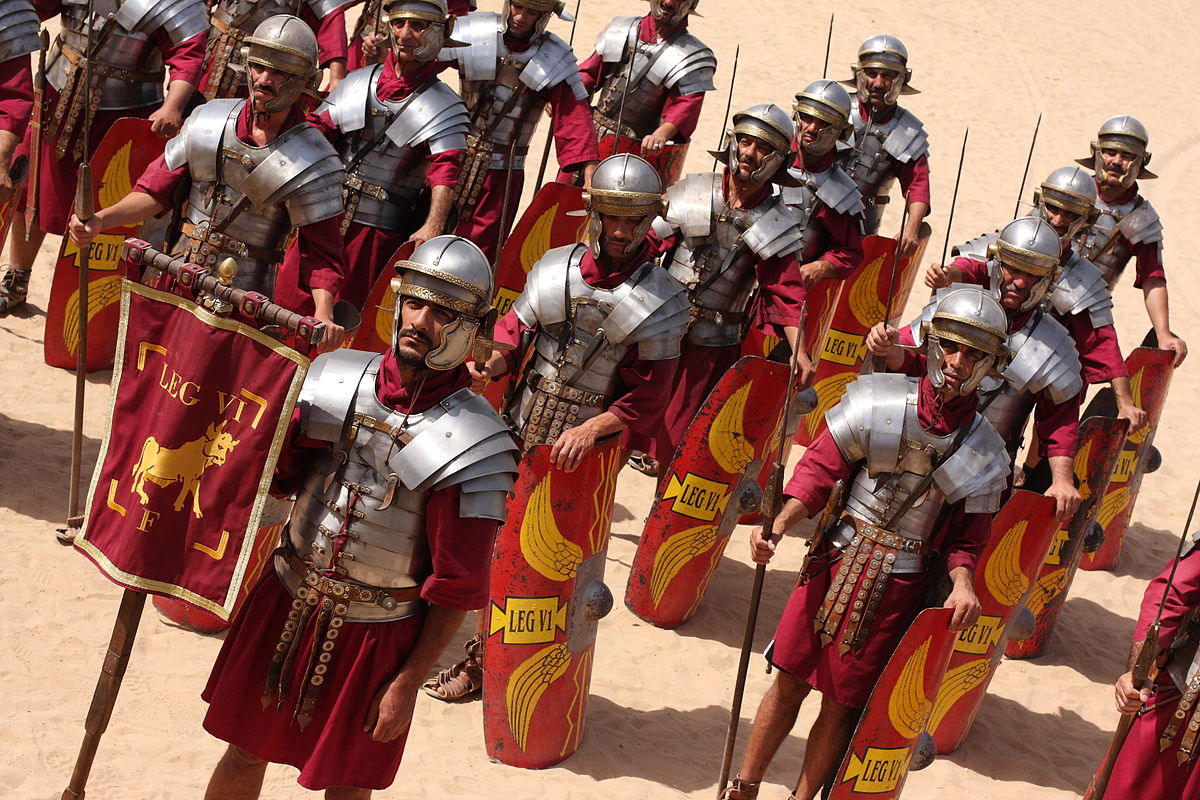
The Art of War (De rei militaris or Epitoma de rei militaris) is a classic of war studies. It has a particular descriptive value and not strictly strategic, that is, not so much focused on a normative dimension (principles of war and what I’ve called pure theory of war). Publio Flavio Vegezio Renato (from now only Vegetius, as it is universally known in English) is not substantially interested in general and strategic elements of war and “military art”. Therefore, he is not so much interested in what we would say today the part of war most connected with the state politics (or an empire) or concerning the nature of the strategic planning of the military campaign. Rather, he is a historian and tactician of the classical Roman era. Let it be said straight away that the Vegetius’ Art of the war is not a text written in the Rome’s Republican period but during the epigonic phase of the empire (4th century AD). The influence of the classical Roman period (understood in the period between the monarchic and the republican period up to Augustus included in this broad concept of Latin classicism) extends for all the pages of the work of Vegetius. He was far by considering the Roman imperial mandate as ended with the center of gravitation of civilization. He tries to find the reasons why the ancient Roman armies had made the city the center of the known world (by the Romans).
Here, however, we will not focus on the historical elements of the work of Vegetius. Indeed, there is no doubt that there is a specific literature of greater authoritativeness (Edward Luttwak or Lawrence Freedman). Instead, we will try to clarify the key points of Vegetius’ vision to bring to light his reflection within the warfare and strategy. This is because, probably, Vegetius’ vision remains a point of reference which is still interesting and authoritative today. It is indeed considered a classic of the Roman military tradition along with the probably better Strategikon written by emperor Mauritius. When necessary, we will also draw some historical considerations to understand the reasons why Vegetius believed he is defending a certain position. Finally, our reference edition is an English translation by John Clarke of the first three books of the work (in total of four) which I translated from my Italian version again into English.
Before considering the fundamental elements of warfare in the light of the interpretation of the Roman tactician, it will not be out of place to focus on the author’s way of writing, to better frame its purpose. He writes De rei militaris to provide consolidated ideas applicable to coeval military practice for use and consumption by the emperor. Relatively similar to Machiavelli’s Prince pedagogical intents, the focus is on teaching the sovereign how to improve its military knowledge. However, Vegetius focuses mainly on a historical-descriptive analysis of the legions, leaving the normative analysis to be taken directly from the reader, that is a set of principles that can be generalized. True, the work contains a list of maximum practices. However, they are less important than the general descriptive analysis. The idea is, therefore, the classical one regarding the implicit didactic value of History and history (history with a lowercase “h” will be used to understand historical events. While History with a capital will be used to understand historiography). Thus, a historical fact and its historical reconstruction into current language are both sources of information essential for the acquisition of the right doctrine (committed to a normative and regulatory point of view). The sovereign “love” for History and history is not only motivating for the historian to preserve and know the facts of the past, but also for the reader him/herself, especially the one interested in translating the knowledge available on the discipline into practice.
In this sense, Vegetius places himself, like all Roman historians (see Sallustius), within the tradition that wants the historical example as a supreme case worthy of blame or emulation – let’s think of the celebrity and influence of the style of Plutarch’s parallel lives. For this reason, describing the Roman military structure of the classical age is not only a way to preserve an important historical memory at the identity level, but has a properly didactic, almost prescriptive value: “We cannot now expect to find a man who teaches what no one has ever learned for themselves. The only method, therefore, that remains of recovering ancient customs is through books, and by consulting old historians “. [For the orginal references, please see the Italian version of the article] Finally, Vegetius is certainly to be inscribed in the dominant Roman historiographic and intellectual tradition which privileged the costume of Rome of the classical period, whose set of values consolidated within that mos maiorum which was the ideal, the optimum social and action rationale for most Roman intellectuals.
However, as an art of war, Vegetius still distances himself from a purely theoretical conception of war and warfare, limiting this conception exclusively to the knowledge of the facts of the past. History and history can be two important directions of learning, but they are not exclusive and sufficient conditions (if at most necessary) for the definition of military virtue practically instanced by the practice of the soldier or of the general. For this reason Vegetius divides the members of an army into four categories: (1) the soldiers, (2) the officers, (3) the “logisticians” and (4) intelligence gatherers. Although we are drawing this result in the light of reading its text, the approach is attributable to the tactician: what we want to distinguish here are not the roles of the individual fighting masses, but the general typology of the men involved, that is, the military roles present within a highly efficient army. This is something still interesting and this is what we are going to discover in the next post.




Be First to Comment